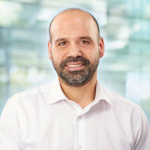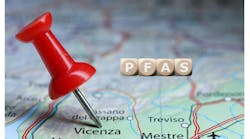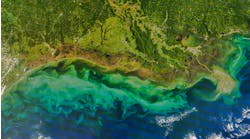Another Earth Day has come and gone, overshadowed by the whirlwind of purchasing my first home. Amid the chaos, the significance of this annual day to spotlight environmental issues nearly slipped my mind.
But a walk around my neglected yard served as a timely reminder. Overgrown flower beds choked with ivy, both the harmless English variety and the poison kind, greeted me, along with a tangle of brambles and invasive garlic mustard in the rear wooded area.
Tackling this yard work, especially at my age, pushing 50, proved daunting. My desk job hardly primed me for the physical demands of digging and wrestling with 2-foot-deep roots. Yet, an alternative loomed: herbicides.
I grew up around yard chemicals. My dad sprayed them on fruit trees, vegetables, roses … you name it. We definitely weren’t an “organic” household. Rachel Carson would be mortified.
And dad never paid much heed to protective gear. No gloves, no eyewear, no mask or respirator.
My parents taught me to fear many things in life, but chemicals weren’t among them. Just wash that plum or tomato with a little water before you eat it and you’ll be fine, dad would say.
However, a brush with mortality altered my perspective. My mother's diagnosis of non-Hodgkin lymphoma forced a reevaluation.
Recent legal battles and hefty settlements linking Roundup, a glyphosate-based weed killer, to cancer cases intensified my scrutiny. As Water Technology magazine explains, glyphosate is a broad-spectrum herbicide introduced by Monsanto in 1974.
While the U.S. Environmental Protection Agency has determined glyphosate is safe when used as directed, lingering doubts persist. In January a jury awarded a Pennsylvania groundskeeper $2.25 billion victory against Bayer, the manufacturer of Roundup.
I don’t know if Roundup causes cancer. And I certainly can’t conclude that my father spraying a little of it around the patio and driveway to kill weeds had anything to do with my mother’s illness. Dad remained relatively healthy before he died suddenly about four years ago, and mom is still going strong despite her illness.
I won’t pretend, though, that my mother’s illness wasn’t enough to get me thinking twice about what I’m using around the yard.
That doesn’t mean I’m going chemical free. I purchased a brush killer that does not contain glyphosate but still contains a substance that requires safety precautions. There’s a delicate balance at play here: my desire to protect my health, the health of others and the environment are important.
But I also have limited time and resources to work in the yard. And if a chemical can help me eradicate an invasive species like garlic mustard or the purple loosestrife I uprooted in my parents’ yard several years ago, I may decide to use it.
Finding balance with nature doesn’t have to mean all natural all the time. Instead, it requires making educated decisions, while minimizing risk whenever possible.



